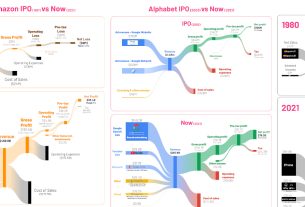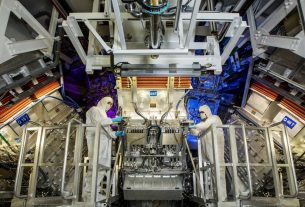The European Commission has introduced a comprehensive strategy to accelerate the adoption of artificial intelligence (AI) across member states, while bolstering the region’s technological autonomy in key sectors. The plan, known as the AI Continent Action Plan, includes a €20 billion investment to support AI infrastructure, chip production, and access to computing power.
Announced on April 17, the initiative outlines steps to enhance Europe’s competitiveness in AI and reduce dependency on non-EU technology providers.
Key Areas of Focus: Infrastructure, Skills, and Industry Transformation
The Commission’s action plan emphasizes investment in several core areas:
- Gigafactories for AI chip production (housing up to 100,000 next-generation chips each)
- Cloud infrastructure and data access frameworks
- AI talent development and simplified compliance processes for businesses
- Public-private partnerships to democratize access to AI compute resources
EU Technology Commissioner Henna Virkkunen, speaking during the launch, stated:
“AI is one of the sectors where we need to build our own capacity, like quantum and chips. They are key technologies for the future.”
(Source: Euronews, April 2025)
She added that while the EU maintains strong AI-related chip partnerships with the U.S., the bloc aims to increase self-reliance:
“We are willing to buy, but we need our own capacities. That is also why we are working on a Chips Act 2.0.”
Public Feedback and Regulatory Alignment
Businesses and stakeholders are invited to contribute feedback on the EU’s Cloud and AI Development Act and Apply AI Strategy via public consultation open until June. These consultations aim to surface the practical barriers to AI adoption, particularly for smaller companies.
This builds on the EU’s AI Act, adopted in 2023, which introduces a risk-based framework for regulating AI systems. Full enforcement of the Act is expected by 2027.
Closing the Gap with Global Competitors
According to data published by the Commission, the EU lags behind the U.S. and other regions in AI investment and startup scaling. While Europe produced 147 unicorns between 2008 and 2021, around 40 of those relocated abroad—mostly to the United States—due to what industry groups cite as “regulatory and administrative hurdles.”
To counter this trend, the EU has set a target for 75% of businesses in the bloc to use AI by 2030, supported by this funding push and planned infrastructure, such as the first AI gigafactory expected in 2026.
Commission President Ursula von der Leyen previously described the strategy as a way to turn Europe’s traditional industries into “powerful engines of AI innovation.”
This initiative is part of a broader effort by the EU to establish strategic resilience across critical technologies, including AI, quantum computing, and semiconductors—areas seen as vital to future economic security and competitiveness.
For further context, the original coverage can be found on Euronews, where excerpts from Commissioner Virkkunen’s press briefing were reported.
EU Technology Commissioner Henna Virkkunen Picture by Alain ROLLAND for European Union 2025 Source EP



